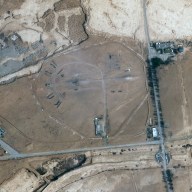TOKYO – Japan’s likely next prime minister will create a new Cabinet post to oversee national strategy and the economy and quickly turn his attentions to proving himself on the diplomatic front – an area in which he is virtually untested, officials said Tuesday.
One of Yukio Hatoyama’s first challenges will be with key ally Washington over a plan to move 8,000 U.S. Marines off the southern Japan island of Okinawa, a plan that could cost Japan as much as $10 billion. Some members of his Democratic Party of Japan have balked at that price tag.
Hatoyama, whose Democratic Party of Japan won a landslide victory in parliamentary elections over the weekend, moved to cement a coalition with smaller allies Tuesday so he can more easily steer the national agenda. He also met with top leaders of his own party to ensure a smooth transition and discuss his Cabinet appointments.
Hatoyama, a Stanford-educated Ph.D and the grandson of a former conservative prime minister, was to formally replace the Liberal Democrats’ Taro Aso as premier in a special session of parliament to be held in the next few weeks.
His left-of-centre Democrats soundly defeated the conservative Liberal Democratic Party, which has been in power for virtually all of the past 54 years. They now face a host of severe problems centred on rebuilding the world’s second-largest economy and dealing with record-high unemployment.
One of his first moves will be to create a new Cabinet post to oversee fiscal policy and other top national strategy issues, a party lawmaker said. He is also expected to name one of the party’s most senior members to take the finance minister portfolio.
“The new post will be a key department that connects the prime minister directly with the entire Cabinet,” Kenzo Fujisue, a Democratic Party lawmaker in charge of national security issues, told The Associated Press.
Hatoyama also met with top leaders of his own party to ensure a smooth transition and with the head of the Bank of Japan. Democratic Party officials and senior bureaucrats in the finance ministry held meetings throughout the day.
Hatoyama told reporters that co-operating with coalition partners was important to ensure a smooth functioning government.
“I would like to make decisions within the government,” rather than through the ruling party, he said.
Japan’s newly elected parliament is expected to convene Sept. 16, at which time he is likely to be elected prime minister given his party’s overwhelming strength in the legislature.
Hatoyama also said he would announce a Cabinet lineup the day he is appointed.
Such a timetable would allow Hatoyama to assume office in time to attend a Group of 20 summit in Pittsburgh and a meeting of the United Nations General Assembly, both set for September.
Diplomacy – and particularly ties with Washington – were also likely to dominate his first months in office.
U.S. Defence Secretary Robert Gates is planning to visit Tokyo in October to discuss the U.S.-Japan military alliance.
The United States has about 50,000 troops deployed across Japan under a mutual security pact that has been in place for most of the post-World War II era.
Hatoyama’s Democrats have said they want to re-examine Tokyo’s relations with Washington and bring to Japan a more independent stance that, while keeping U.S. relations as a cornerstone of their global policy, also places more emphasis on relations with Japan’s Asian neighbours.
Hatoyama’s party has said it wants to end a refuelling mission in the Indian Ocean in support of U.S.-led coalition forces in Afghanistan.
“We are not shifting away from the U.S., but want to figure out how to play a more complementary role,” DPJ lawmaker Fujisue said. “The Japan-U.S. alliance is still the main pillar of our foreign policy.”
The two governments are also working out the contentious details of an arrangement to move some 8,000 Marines off of the southern Japan island of Okinawa to the tiny U.S. territory of Guam by 2014.
The Democratic Party has said the base should be moved off Okinawa.
Hatoyama’s party has been vague on what it intends to do about the base but some members have also questioned Japan’s contribution to the cost of moving the troops, which has been estimated at as much as $10 billion. Washington has insisted it stick with existing plans.
“The United States has no intention to renegotiate the Futenma replacement facility plan or Guam relocation with the government of Japan,” State Department spokesman Ian Kelly said Monday.
–
Associated Press writer Mari Yamaguchi contributed to this report.
















